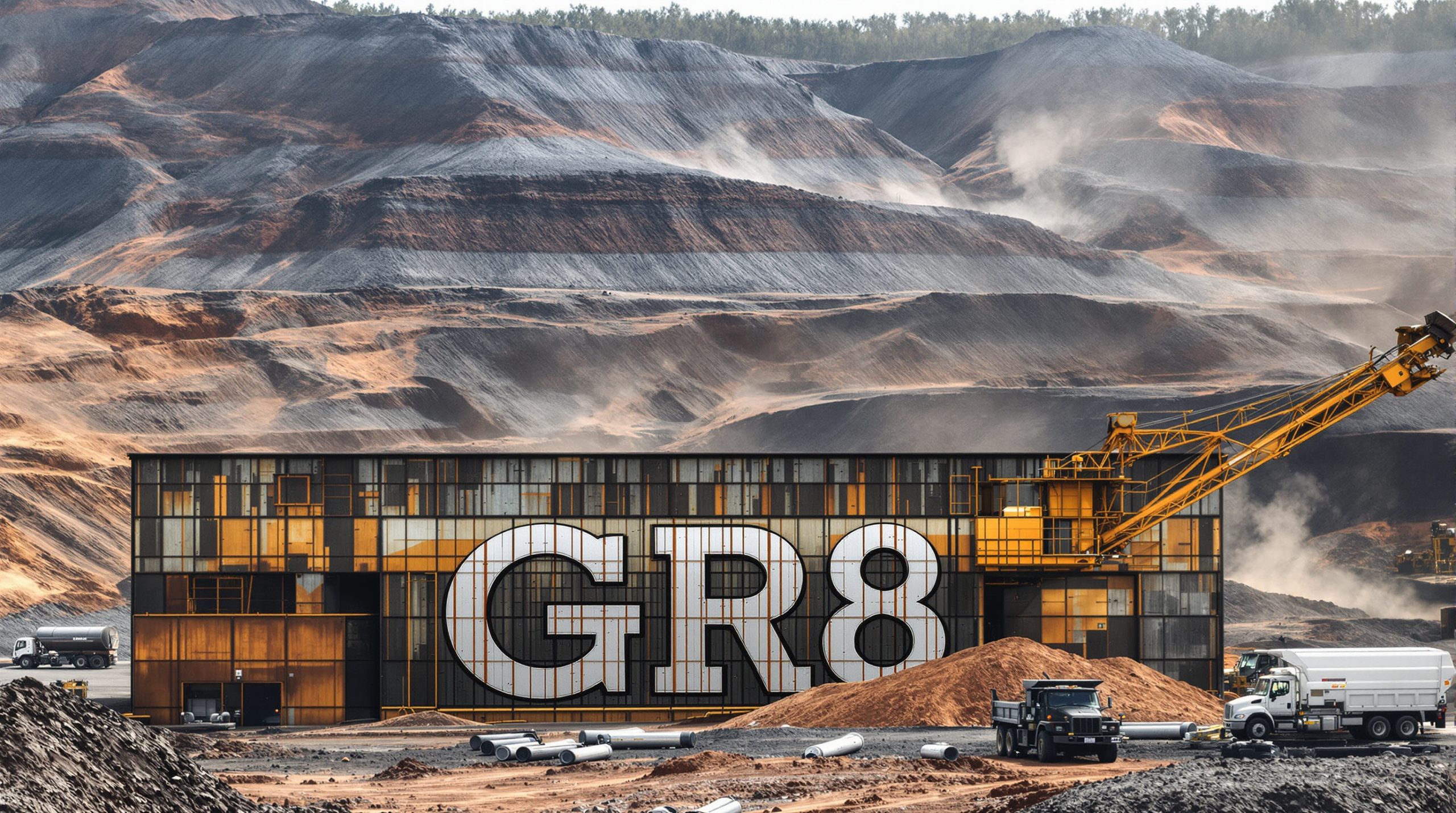Antares Metals Unveils 49 Uranium Targets at Mt Isa with Valhalla-Style Potential
Antares Metals Limited (ASX: AM5) has identified 49 uranium targets, including 10 high-priority targets, at its Mt Isa North Project through a comprehensive data review. The targets share characteristics with the nearby Valhalla uranium deposit, one of Australia's significant uranium resources.
Queens Gift Target Reveals Impressive Historical Drill Results
Among the priority targets is Queens Gift, which has already demonstrated significant uranium mineralisation from historical drilling. Standout historical intercepts include:
- 23m @ 746 ppm U₃O₈ from 74m including 8m @ 1,596 ppm U₃O₈ (QGDC002)
- 31m @ 609 ppm U₃O₈ from 46m including 6m @ 1,133 ppm U₃O₈ (QGRC047)
- 11m @ 1,051 ppm U₃O₈ from 287m including 4m @ 2,298 ppm U₃O₈ (QGRC078)
Historical rock chip sampling has also returned exceptional uranium grades, including 2.86% U₃O₈ at Queens Gift and 1.36% U₃O₈ at the AGIP3 target.
"The Company has progressed target reviews on its uranium prospects and is pleased to now outline our priorities for follow-up exploration. We plan to undertake ground truthing and spectrometry grids on the initial targets as soon as possible and look forward to keeping our investors updated as we progress," commented CEO Johan Lambrechts.
Understanding Shear-Hosted Albitite Uranium Deposits
As Antares Metals unveils uranium targets across its Mt Isa North Project, it's important to understand the deposit type being explored. The uranium targets are classified as shear-hosted albitite-type uranium deposits, which represent the fourth largest group of uranium discovery exploration potential globally.
These deposits are characterised by several key features:
- Prevalence of local N-S, NW-SE, and NE-SW structures (faults, shears)
- Metabasalts and metasediments as host lithologies
- Coincident radiometric anomalism indicating radioactive minerals
- Coincident magnetic anomalism indicating hydrothermal magnetite
Shear-hosted albitite deposits are a form of metasomatite-type uranium mineralisation. These are further classified into sodium (Na), potassium, and skarn types, with the Mt Isa occurrences specifically being shear-hosted, Na-albitite metasomatite types.
The Mt Isa region ranks as the third-largest uranium district globally for this specific deposit type, with a total endowment of approximately 74,590 tonnes of U₃O₈ across 17 deposits.
| District | Country | Total U₃O₈ (tonnes) | Deposits | Largest Deposit |
|---|---|---|---|---|
| Kropyvnytskyi | Ukraine | 327,670 | 22 | Novokostantynivka |
| Logoa real | Brazil | 132,120 | 10 | Engenho |
| Mt Isa | Australia | 74,590 | 17 | Valhalla |
| Central Mineral Belt | Canada | 69,114 | 11 | Michelin |
Three High-Priority Targets for Immediate Exploration
As Antares Metals unveils uranium targets, the company has identified three priority target areas for initial field activities:
1. Queens Gift Prospect
This advanced prospect includes a historical JORC-2004 uranium mineral resource. The geological setting aligns with all the characteristics of the shear-hosted albitite-style uranium mineralisation typical of the region. The mineralised host has been drill-tested over a 1km strike length and appears to continue beneath surface cover to the north and south. Importantly, the mineralisation appears open at depth and warrants renewed drill testing.
2. Tjilpa-Monte Bello Prospects
Located approximately 4.5km south of Paladin Energy's Bikini-Skal uranium deposit cluster, these prospects share the same radiometric and magnetic anomalies, structures, and metabasalt host as those economically significant deposits. A radiometrically "hot" granite, a potential source of uranium mineralisation, is located 5.5km southwest of these prospects, on the southwestern side of the Mt Isa fault system, which likely served as a conduit for mineralising fluids.
3. Ecotte Prospect
The Ecotte Prospect is located along the same NW-SE trending cross-cutting structure that hosts the Queens Gift Prospect. It also shows distinct radiometric and magnetic anomalies within the Cromwell metabasalt suite, with the Mt Isa fault system in close proximity.
Uranium Exploration: Methods and Techniques
As Antares Metals unveils uranium targets across its projects, it's worth understanding the exploration methods typically employed in uranium exploration:
Radiometric Surveys
Uranium exploration often begins with radiometric surveys, which detect natural radiation emitted by radioactive minerals. These surveys can be conducted using airborne, vehicle-mounted, or handheld instruments to identify areas of anomalous radioactivity that may indicate uranium mineralisation.
Ground Spectrometry
Ground spectrometry involves using portable radiation detectors to measure radiation levels directly at ground level. These instruments can distinguish between different radioactive elements, helping geologists pinpoint uranium-specific anomalies rather than those caused by thorium or potassium.
Geological Mapping
Detailed geological mapping helps identify structures, host rocks, and alteration patterns associated with uranium mineralisation. In the case of Mt Isa, mapping focuses on identifying metabasalts, metasediments, and structures that may host mineralisation.
Rock Chip Sampling
Collection and analysis of surface rock samples provides direct evidence of uranium mineralisation and can help prioritise areas for more detailed exploration. The exceptional grades from historical rock chip sampling at Queens Gift (2.86% U₃O₈) and AGIP3 (1.36% U₃O₈) demonstrate the effectiveness of this method.
Upcoming Exploration Program
Following the announcement that Antares Metals unveils uranium targets at Mt Isa, the company has outlined its immediate exploration plans:
- Ground spectrometry surveys and ground truthing with rock sampling across all priority prospects
- Potential upgrading of the Queens Gift JORC-2004 mineral resource to JORC-2012 compliance
- A maiden extensional drill program at Queens Gift, depending on progress at other prospects
The company has several other priority uranium prospects, including Skevi and Joker, which have already been drill-tested and may move up the priority ranking as data review and gold exploration at nearby projects progress.
Investment Potential of Antares Metals' Uranium Assets
Antares Metals presents a compelling investment opportunity in the uranium exploration sector for several reasons:
-
Strategic Location: The 2,003 km² Mt Isa North Project is situated in a tier-one mining jurisdiction adjacent to Glencore's Mt Isa Operations.
-
Proven Uranium District: The Mt Isa region ranks as the third-largest uranium district globally for shear-hosted albitite deposits.
-
Advanced Targets: Several targets, including Queens Gift, already demonstrate high-grade gold intercepts and significant uranium mineralisation from historical drilling.
-
Exceptional Grades: Historical rock chip samples have returned grades up to 2.86% U₃O₈, indicating high-grade potential.
-
Multiple Commodities: Beyond uranium, the project area is also prospective for copper, zinc-silver-lead, and rare earth elements.
In addition to uranium exploration, Antares is continuing to advance its copper prospects at the Mt Isa North Project, with further activities planned for the Surprise and Conglomerate Creek prospects.
As global interest in nuclear energy continues to grow in response to climate change concerns and energy security needs, companies with growth opportunities in mining and quality uranium assets in stable jurisdictions are likely to attract increasing attention from investors and strategic partners.
Furthermore, companies in the region like Antares are well-positioned to benefit from the growing interest in uranium exploration, especially as other mining companies announce new gold targets in nearby projects.
Looking to Identify the Next Major Uranium Discovery?
Discovery Alert's proprietary Discovery IQ model delivers real-time notifications on significant ASX uranium discoveries, instantly transforming complex mineral data into actionable investment insights. Visit the Discovery Alert discoveries page to understand why historic mineral discoveries can generate substantial returns for early investors.




